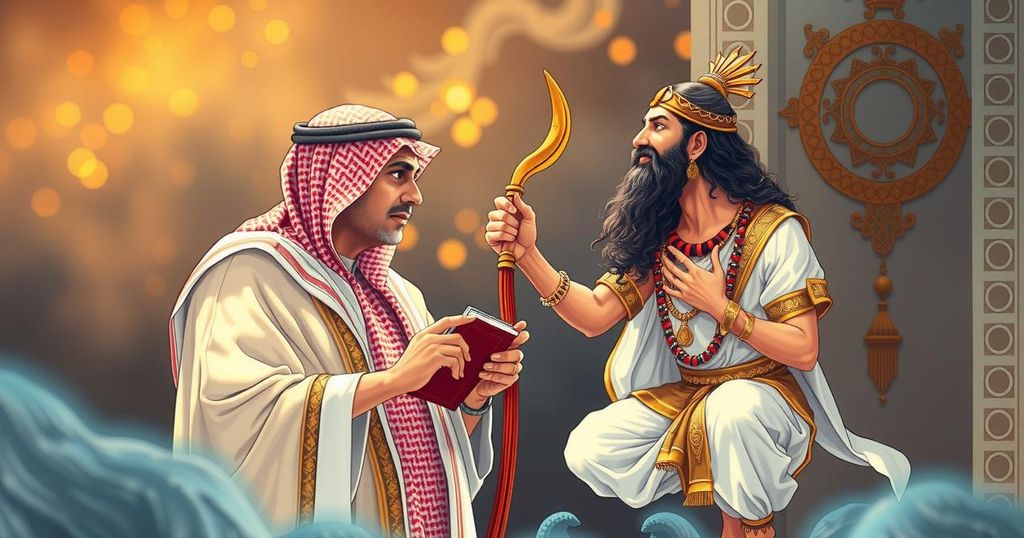Prime Minister Narendra Modi’s two-day visit to Kuwait marks the first by an Indian PM in 43 years. Major highlights include meetings with translators of the Ramayana and Mahabharata in Arabic, and discussions on strengthening bilateral ties. The Indian community, which constitutes a significant portion of Kuwait’s population, plays a vital role in fostering these connections. Modi’s visit aims to enhance trade and cultural relations between the two nations.
Prime Minister Narendra Modi commenced his two-day visit to Kuwait, marking the first time an Indian Prime Minister has visited the nation in 43 years. Upon his arrival, he was received warmly by the local Indian community and Kuwaiti leaders. Noteworthy meetings included discussions with Abdulla Al Baroun and Abdul Lateef Al Nesef, the translators and publishers of the Arabic versions of the Ramayana and Mahabharata respectively. Modi expressed excitement about this cultural exchange during his radio broadcast, ‘Mann Ki Baat.’
In addition to these significant interactions, PM Modi met Mangal Sain Handa, a centenarian and former Indian Foreign Service officer, who had reached out via social media with a request to meet the Prime Minister. His visit bodes well for India-Kuwait relations, which are strong in trade and energy partnerships. The Prime Minister emphasized the importance of this relationship in promoting stability and prosperity in the West Asia region.
Kuwait represents a key trading partner for India, with bilateral trade valued at $10.47 billion in the financial year 2023-24. The Indian community constitutes the largest expatriate group in Kuwait, accounting for 21 percent of the total population, with Indian nationals predominating in both the private and domestic workforce sectors. Modi looks forward to discussing future cooperation with Kuwaiti leadership and will also attend the opening of the 26th Arabian Gulf Cup.
The visit of Prime Minister Narendra Modi to Kuwait is significant as it signals the strengthening of diplomatic ties between India and Kuwait, a relationship with historical roots tracing back to pre-oil trade. The Indian expatriate community plays a crucial role in Kuwait, contributing significantly to its economy. The cultural exchange represented by the translations of the Ramayana and Mahabharata into Arabic showcases the deep connections between the two nations beyond commerce, emphasizing shared cultural heritage and values.
In conclusion, Prime Minister Narendra Modi’s visit to Kuwait symbolizes both a historic engagement between the two countries and a recommitment to enhancing mutual cooperation in various sectors. The interactions with translators of classical Indian texts and the acknowledgment of the Indian community’s contributions underline the multifaceted nature of the India-Kuwait relationship, which continues to evolve within the context of global and regional dynamics.
Original Source: www.ndtv.com






